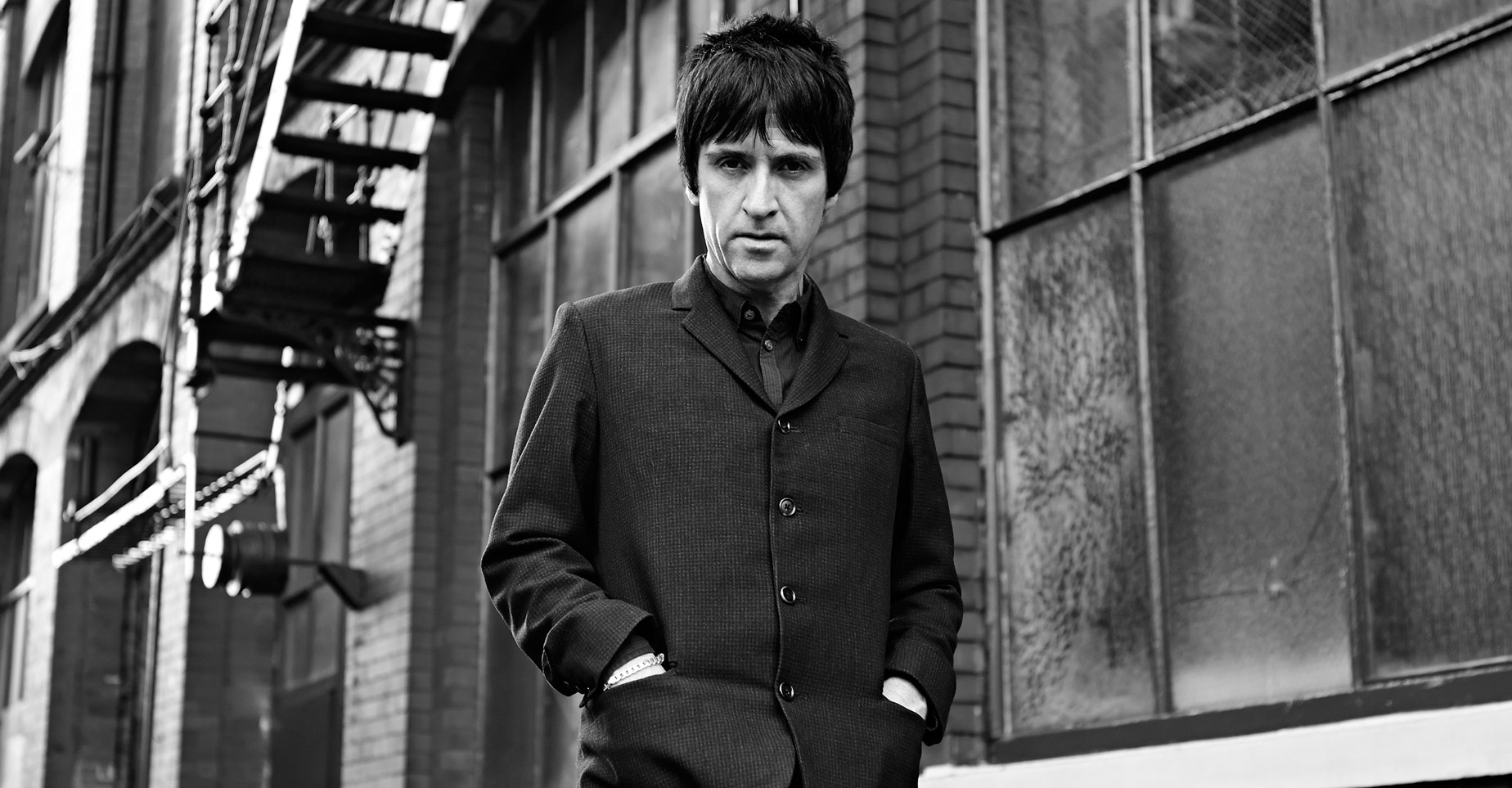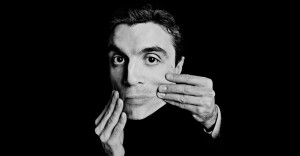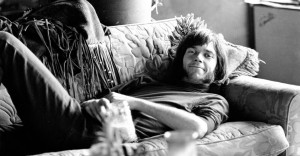Mr. Marr, over the years you’ve been a full-time member of numerous bands, including The Smiths, The The, and Modest Mouse, and you’ve collaborated with other artists on countless albums and films. Would you consider yourself restless?
As the years have gone on, I’ve had to explain that I’m not actually a workaholic. The collaborations and being in different bands and doing movies and all this stuff confuses people, because if you’re first known for being in a rock band, you’re supposed to stand up against that wall in your leather jacket with the same three guys for 45 years. (Laughs) And if you work from one project to another to another, you’re supposed to be a workaholic, like you have some pathological restlessness. But that never seemed to bother Brian Eno very much…
True.
But because I’m a rock guitar player, there’s a certain archetype that you’re supposed to follow. I’m really happy to try to break that archetype. Rock guitar players can’t stay stuck in that ’70s archetype, that culture of being a guitar hero. I didn’t want, personally, for it to be over, because I grew up as a little boy thinking that playing the guitar was heroic. And I still do. But if we can modernize it then I’m very happy to do that. In the end I just want to work every day because it’s nice! I have a friend who is a painter and he pointed out that all the people that I like, like David Hockney, Lucian Freud, Damien Hirst…
If they did the same thing all the time, people would have written them off a long time ago.
Exactly. That is just the difference between rock music and the other arts. I love it, though. Having said that I love it, like the rest of the world, I’m over classic rock. It doesn’t really feel relevant. I admire it but I don’t particularly like it anymore. But I do remain very idealistic about what a band can be. I think a band is a very, very useful and honorable set up. It does something in a way that nothing in the arts can do… It gives people something to follow, there’s a narrative in a good band: band members coming and going, people’s lives changing. A band can be a statement whether they’re big or small.
What role does friendship play when it comes to being in a band?
The situation when I’ve been in bands has almost been the opposite of what people thought for many years. People think that it was casual or that it was a career move, when in fact, it was 90% based on a belief or a bond with the other band members, a belief that we were on some kind of mission. My relationship with Matt Johnson and my role in The The was as a companion on the mission, really. Same with Isaac Brock and Modest Mouse. I wasn’t sitting outside the building in a limousine on the phone with my manager; I really got in there. Same with The Cribs. So, I have to have a really strong partnership with someone to actually be in the band, otherwise I’d just make a record and then split.
That makes sense, especially if you tour. Some people can end up hating their best friends after traveling together for just a few weeks.
True. And the problem with The Smiths was that the friendship broke down, so I became very, very disillusioned, and started to see problems in the music and with the future. It becomes really obvious that you’re no longer looking at the future with the same eyes, and the music that you want to make with same eyes. To do what I do, it takes over your life, and I’m really, really happy with that.
Until it stops working…
Yeah, that the friendships broke down was really heartbreaking for me. It was really difficult to recover from for many years, the idealism of the closeness. But it was always in my destiny to be in a lot of different bands, whether they were successful or not. It’s worked out okay, luckily. With my own band for my solo project, I’ve been friends with all the members of the band for 10 or 15 years. I haven’t put together a bunch of strangers in the right jackets.
You have said before that you make your solo records because you felt there is something missing in pop music. What is it that is missing?
I think what I’m really missing is the sense that pop music can be made on guitars with a certain type of singing. I have a problem with what’s now become pop music, because essentially it’s just mutated R&B. The singing always seems to be this melodramatic nonsense. And it’s crept into indie rock now, too. You have this idea unless something is expressed in this way that is melodramatic, like it’s come from the deepest, deepest recesses of my soul, then it’s not authentic. Well, who cares about authentic? Authentic is not very interesting to me. And it’s not authentic anyway.
What is it?
It’s basically people confusing “authentic” with “sentimental.” (Laughs) I’m not putting that down, there’s a place for that. But it’s easier to drink a whole bottle of wine at 11 o’clock at night, midnight, and roll a spliff and write some kind of introspective, earnest kind of music. What I want for me and my band is to be making music that people can relate to when they’re going on the train in the morning, that manages to connect with people who go about their business during the day, and yet it’s still cool.
You’ve had a lot of changes in your professional life, but you’ve been with same girl since you were a teenager and had the same manager since those days as well. Is consistency in your private life essential for your professional life?
That’s to do with just not being an idiot. I always say that we’re very lucky. Your partner should make you brave. And that’s what happened with me when I was 15. I met this girl who just made me brave. I already was on a mission to do what I was going to do, and we’re like two sides of the same coin. I think that a bit of it is survival instinct. If your working life is turbulent, you really need your structure to not be turbulent. People around me are quite bohemian, they’re by no means “straight,” and that includes my wife and my manager. We really believe in bohemianism. But at the same time as being bohemian and not straight, my wife and my manager are sensible and don’t let me get way crazy.
Do you feel you’ve found a nice balance?
I think I’ve managed to strike a balance with my family life and being grateful for being unconventional. My children are the same. My children are in their early twenties now and they have a pride that they grew up with a lifestyle that was bohemian and devoted to the artistic. But it wasn’t anarchic, nor was it the Osbournes. Luckily I didn’t actually make that kind of money, either. My house is a rock guitarist’s place in the country, but it’s an indie rock guitarist’s place in the country.
But I’m sure you could have easily taken it to that level.
I got asked to join a couple of those really big bands in the ’80s and ’90s. But you stop having a connection to… It sounds so corny, but to “the street.” I’ve always been very comfortable with being able to walk around the street at night and look at what clothes people are wearing and look at my own clothes, and going to see new movies… I would never want to be so wealthy and detached that you didn’t have that connection. It’s very important to me now. Thankfully I’m beyond needing validation and street credibility. I think at my age that would be sort of tragic. (Laughs)
You’ve got plenty anyway.
Luckily it worked out all right. But I like to think that at 60 and 70 I’m still hunting through modern bookshops and looking at journal art, and things that are part of modern culture. That’s terribly important, I think. Who wants to travel everywhere and be a people-carrier all the time? And just sit by a pool and be dealing with, like, staff and all that. It just feels terribly divorced from art. You feel like an executive! I’ve been around quite a lot of musicians who act like executives. That would kill me.
Return to Top

Short Profile
Name: John Martin Maher
DOB: 31 October 1963
Place of Birth: Ardwick, Manchester, England
Occupation: Musician
Johnny Marr's new album is called Playland and comes out on October 6th.





















Comments
write a comment, read comments